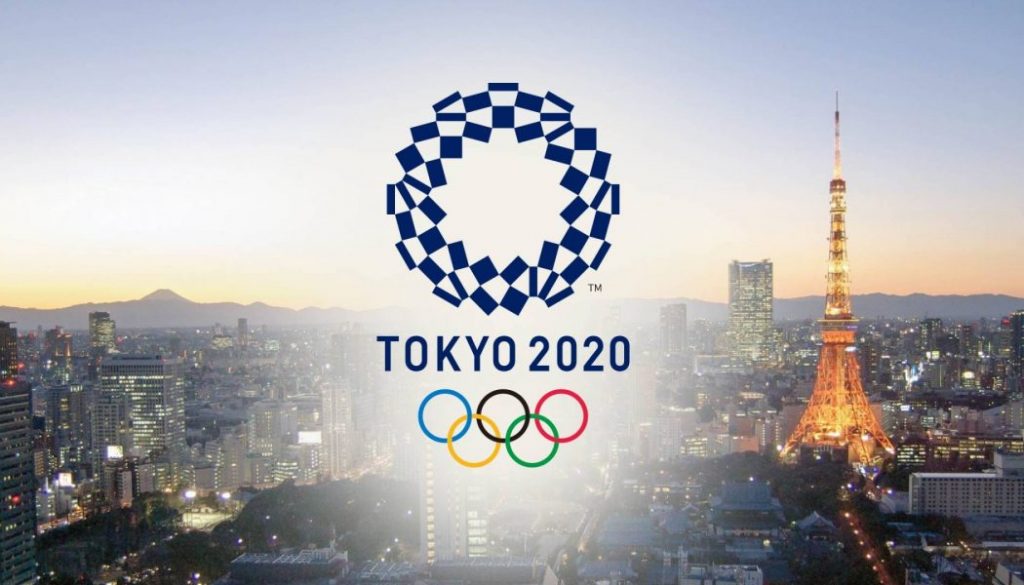Tokyo’s New Spectator Plan Leads Headlines As Games Hits One Month To Go
June 23, 2021
Olympic Games adviser Michael Pirrie outlines how Tokyo’s spectator blueprint will define the Games as organisers mark the start of the final countdown to the Tokyo 2020.
The long awaited decision on crowd numbers reveals the final big policy piece that has been missing in Tokyo’s preparations.
This decision will help to define the Tokyo Games in terms of safety outcomes and direction of future Olympic Games in the Covid era of major international sport.
The 10,000 limit on domestic fans has been the headline number but there are no guarantees. Like tickets for the Games, the policy decision comes with terms and conditions attached.
With Japan’s senior medical figures advocating for Games behind closed doors, Prime Minister Suga’s government has indicated the event could still take place without spectators if the virus situation worsens.
The prospect of ghost Games in Tokyo heralds a new stage in the delivery and history of the world’s biggest and most important sporting event and is a defining point with the past.
Full venues have been at the centre of some of Olympic sport’s most iconic moments.
These include the drama surrounding British athlete Derek Redmond, whose father emerged from the stands of the Barcelona Olympic stadium to help his injured son complete a semi-final in the 400 metres at Barcelona 92.
The sight of the athlete’s father stumbling with his stricken son to the finish line prompted an unprecedented standing ovation from the 65,000 spectators watching on.
While spectators have long been an essential Games feature, the dramatic drop in spectator numbers for Tokyo was just as essential to combat a virus that doesn’t need a ticket or day pass to enter venues.
Tokyo’s spectator policy will be fundamental to the success of the Games.
“Olympic broadcast partner NBC alone will present an unparalleled 7,000 hours of Games coverage utilising two broadcast networks, six cable networks and multiple digital platforms.”
The ceiling on numbers comes at a critical time as authorities attempt to restrict the spread of highly transmissible corona variants in Tokyo and other Olympic locations.
Containing corona will be the single biggest focus in the final countdown to the Games as preparations move rapidly into overdrive. This includes the growing number of foreign teams beginning to arrive and venues are activated.
THE NUMBERS GAMES
Fewer spectators will reduce the need for pre-Games venue infrastructure, preparations and staffing, and reduce potential spread of the virus.
The cap on spectator numbers, importantly, will reduce cleaning, catering, transport and other requirements during the Games.
This – along with dramatic cuts to Olympic stakeholder and participant group numbers – will reduce the scale of the Games and flurry of movement and activity in and around Olympic venues and communities, and in turn cut the movement of the virus and potential exposure sites during the Games.
SCREENING THE GAMES
While the Olympic Games has long been a made for television event, a possible shut out of local fans could make Tokyo the first Olympic Games for television only.
This would draw the biggest global television audiences since the Apollo moon landing.
“Irrespective of whether we have spectators or not we’re going to see one thing; its that the outside world will come into the stadiums, although digitally,” IOC executive director, Christophe Dubi, said earlier this year.
Olympic broadcast partner NBC alone will present an unparalleled 7,000 hours of Games coverage utilising two broadcast networks, six cable networks and multiple digital platforms.
This is claimed to be the biggest media event ever.
A spectator lock out would turn venues into no go zones to protect athletes, essential staff and host locations, and slash ticketing and merchandise revenues.
It would, however, help to keep the vital sports competition schedules on track for the commercially important broadcast and rights holding media, partners and top tier partners.
EUROS WARM UP
Hopes were high that the delayed Tokyo Olympic Games, along with the Euros currently in play, might transcend the toll of Covid illness, isolation and suffering that has overwhelmed the planet.
With 24 national teams and 51 games scheduled across 11 host countries over 30 long days during the pandemic, these Euros have been a compelling warm up for the Olympic Games.
“Comparisons with the sell out crowds from former Games will be inevitable but not helpful.”
The Euros, the second biggest sporting event of this turbulent year, have reflected some of the hopes, challenges and possibilities ahead for the Tokyo Games.
LAZARUS-LIKE SPORT
The tournament has highlighted the power of sport even in pandemic times.
This includes the heart stopping moment of Christian Eriksen’s collapse and miraculous return from a seemingly hopeless situation.
The footballer’s Lazarus-like comeback lifted the Covid cloud of despair and was rejoiced universally in nations far beyond continental Europe.
As the Swiss writer Erik Niva noted of Eriksen’s remarkable recovery, “Denmark lost but life won.”
Ronaldo’s removal of Coke bottles from his press conference table has not removed the fizz, sparkle and fantasy of football from the tournament.
The campaign by Italy – swamped by a tidal wave of death and disease at the outset of the pandemic – has brought optimism and belief to the nation. And for others too in search of hope in the future.
While spectators may are only play cameo roles as venue props in Tokyo, comparisons with the sell out crowds from former Games will be inevitable but not helpful.
We have entered a new era in sporting and world history, and as the writer LP Hartley once observed: “The past is a foreign country, they do things differently there.”
With or without spectators, the Tokyo Games will have athletes, hope, suspense, fear, dreams, despair, redemption and healing, and the diversity of emotions experienced globally in Covid.


